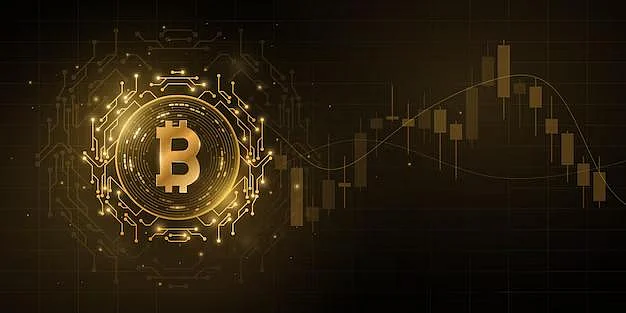In the fast-growing world of finance online, Ethereum has emerged as one of the leaders in the industry. While Bitcoin introduced the idea of a currency that is decentralized, Ethereum took it to the next level by providing for smart contracts and decentralized applications (dApps). What actually sets Ethereum apart, though, is its large ecosystem of tokens — web assets built on its blockchain. These Ethereum tokens have revolutionized how we perceive ownership, exchange, and innovation within the Crypto Coin market.
This article explains in detail how Ethereum tokens work, their benefits, the various types, and why they continue to be the Crypto Coin market leaders.
Understanding Ethereum Tokens and the Crypto Coin Market
Before diving into Ethereum tokens, let us understand the general idea of a Crypto Coin. A Crypto Coin is a virtual asset that has its own independent blockchain (like Bitcoin or Ether). Tokens, on the other hand, are virtual assets built on an existing blockchain platform, e.g., Ethereum.
The Power of Ethereum: Why Programmers Prefer It
Ethereum was not designed to be just another Crypto Coin — it was developed as a platform for development. Its greatest asset, smart contracts, allows code to autonomously perform transactions when conditions are met without the need for intermediaries.
Key Advantages of Ethereum Tokens:
Decentralization: No single centralized body controls the creation or handling of tokens.
Interoperability: Ethereum tokens get along harmoniously with one another in the same network.
Transparency: All transactions are recorded on an open blockchain, giving traceability.
Ease of Development: Ethereum provides developer-friendly features, enabling faster token deployment.
Global Reach: Tokens can be sent or exchanged anywhere without the traditional banking system.
These combined features make Ethereum one of the most versatile platforms for developing and managing Crypto Coin projects.
Types of Ethereum Tokens
Ethereum consists of several token standards, each playing various roles in the world of blockchain.
1. ERC-20 Tokens (Fungible Tokens)
These are the most common type of tokens on Ethereum. ERC-20 tokens are fungible — every unit is equal to any other.
Examples:
USDT (Tether): Stablecoin pegged to the US dollar.
UNI (Uniswap): Governance token for the Uniswap decentralized exchange.
LINK (Chainlink): Secures decentralized oracle networks.
Use Cases:
Payments and transfers
Governance voting
Incentive and reward systems
2. ERC-721 Tokens (Non-Fungible Tokens or NFTs)
Unlike ERC-20, ERC-721 tokens are unique and cannot be exchanged one-for-one.
Examples:
Digital artwork (e.g., CryptoPunks or Bored Ape Yacht Club)
In-game items
Real estate or identification representation
NFTs revolutionized the thought process for digital ownership, positioning Ethereum as a platform for cultural and creative innovation in the Crypto Coin world.
3. ERC-1155 Tokens (Multi-Token Standard)
ERC-1155 is a token standard that combines fungible and non-fungible tokens in a single smart contract.
Benefits:
Batch transfers in an efficient manner
Lower transaction costs
Multi-asset support for gaming and metaverse applications
This breakthrough provides the developers with the flexibility to work with sophisticated Crypto Coin ecosystems.
The Function of Ethereum Tokens in the Contemporary Crypto Coin Market
Ethereum tokens are integral parts of the digital economy. They are not just a digital currency; they represent access, governance, and ownership between applications.
The Major Use Cases Are:
Decentralized Finance (DeFi): AAVE and COMP tokens enable bankless borrowing, lending, and staking.
Stablecoins: USDT, USDC, and DAI stabilize by tying their value to fiat currencies.
Gaming and Metaverse: MANA (Decentraland) tokens power virtual economies.
Governance: Token holders vote on upcoming blockchain project development.
Crowdfunding (ICO/IDO): Startups issue tokens to raise funds securely and transparently.
These uses render Ethereum tokens a foundation for countless Crypto Coin innovations.
The Future of Ethereum Tokens
As the transition to Ethereum 2.0 takes hold, scalability and sustainability are front and center. The upgrade aims to accelerate transactions, lower the costs, and be more energy efficient — motivating even more developers to build new Crypto Coin solutions.
Emerging developments will include:
Layer-2 solutions (like Arbitrum and Optimism) for faster transactions.
Cross-chain compatibility so Ethereum tokens can speak with other blockchains.
Increased institutional adoption as businesses explore blockchain integration.
Dilemmas Confronting Ethereum Tokens
While they are beneficial, Ethereum tokens suffer from a few problems:
Peak network usage with elevated gas prices.
Scaling problems compared to newer blockchains.
Token sales and DeFi projects monitored by regulatory authorities.
Security concerns arising from buggy smart contracts.
Yet relentless research and development continue to keep these challenges in check for Ethereum's dominance in the Crypto Coin market.
Conclusion
Ethereum tokens have broadened the limits of what a Crypto Coin can accomplish. From digital payments to decentralized finance, NFTs, gaming, and alternative models of governance, they've opened up new avenues.
As blockchain technology evolves, Ethereum's token ecosystem remains a powerful driver of innovation — linking finance, technology, and imagination.
FAQs
1. What is the difference between an Ethereum token and a Crypto Coin?
A Crypto Coin possesses its own blockchain (e.g., Bitcoin), while Ethereum tokens are issued on the Ethereum blockchain using smart contracts.
2. How do I create my own Ethereum token?
You can create one using the ERC-20 standard by writing a smart contract in Solidity. You can deploy your token easily using platforms like Remix IDE and Truffle.
3. Are Ethereum tokens safe to invest in?
While Ethereum itself is secure, every token is dependent upon the legitimacy of their projects. Always research first before investing.
4. Can Ethereum tokens be exchanged for others from alternate blockchains?
Cross-blockchain bridges and wrapped tokens allow for transferring Ethereum assets between blockchains like Binance Smart Chain or Polygon.
5. Why is Ethereum important in the Crypto Coin market?
Ethereum introduced smart contracts and decentralized applications, taking blockchain from just transactions to an innovation-driven ecosystem.

















